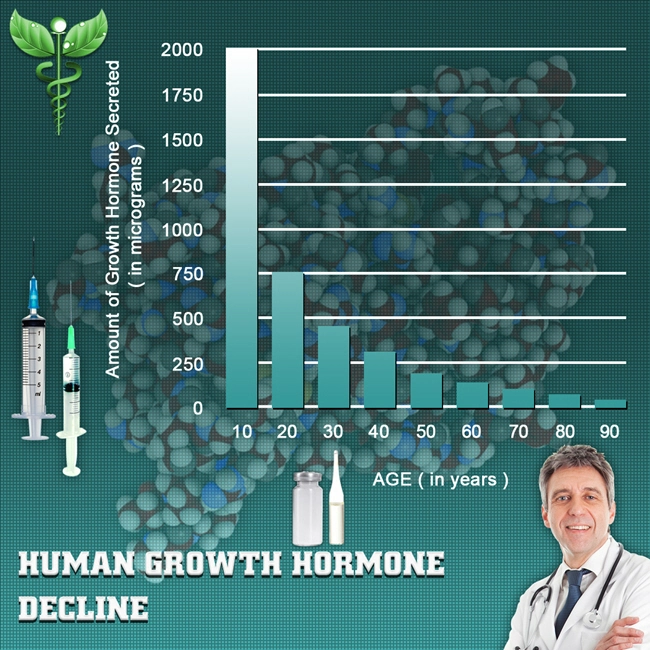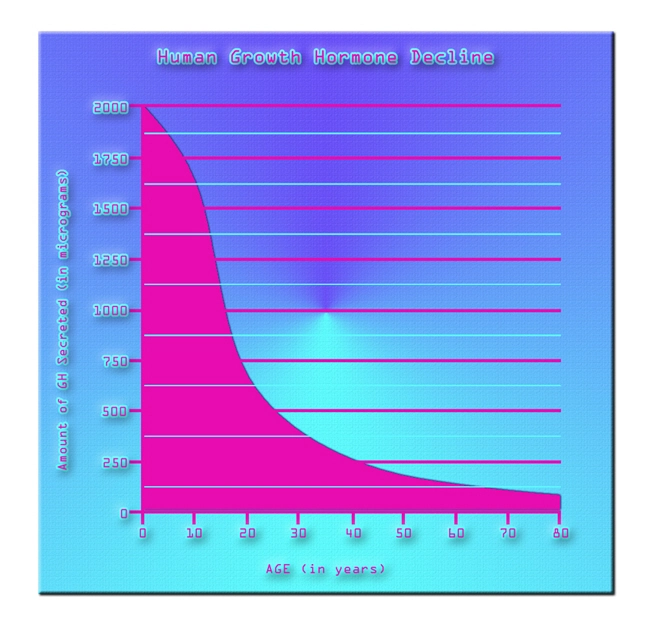
Video Link: https://vimeo.com/557223490
Video Download: Click Here To Download Video
Video Stream: Click Here To Stream Video
A massive evaluation of blood tests from over 3.5 million patients provides new evidence regarding how our bodies are affected by the changing seasons. While these hormonal changes are clinically significant, they are also relatively small. While other species can experience massive shifts in Hormone Balance due to seasonal patterns, the differences in human beings are much more subtle.
The pituitary gland is the origin point of the series of Hormone Cascades that keep us living and thriving. Other organs associated with Hormone Production, such as the testes, ovaries, and thyroid gland, also experience seasonality. While one might guess that sex hormones are more active in the summer, it appears that these hormones hit their peak late in the winter or early into spring. Testosterone, Progesterone, and Estradiol all fall into this pattern.
The Circadian Rhythm and the Circannual Clock
The human Circadian Rhythm is reasonably well understood. The day-night cycle has a profound effect on the way that our bodies work. However, seasonal cycles remain somewhat of an enigma, to the point that scientists are still searching for undeniable evidence that humans have a seasonal clock. This study offers the most compelling argument that humans have a seasonal biological clock, also known as the Circannual Clock.
This massive blood test analysis is combined with insight from other studies that have suggested that humans function at their healthiest from late spring to early  summer. These studies indicate that humans both grow and perform better during this period of the year. This time of year is strongly associated with rebirth and renewal, which may be rooted in biological reality. Studies show that the lead-up to spring is associated with heightened reproductive function, healthier metabolism, lower stress, and optimized growth.
summer. These studies indicate that humans both grow and perform better during this period of the year. This time of year is strongly associated with rebirth and renewal, which may be rooted in biological reality. Studies show that the lead-up to spring is associated with heightened reproductive function, healthier metabolism, lower stress, and optimized growth.
How Does the Human Body Measure the Seasons?
As researchers gather evidence regarding the existence of the Circannual Clock, the next step is to unearth the mechanisms that contribute to these seasonal changes. It's hypothesized that the endocrine system takes feedback from the periphery hormone glands to modulate pituitary activity. Sunlight is known to substantially affect the production of pituitary hormones such as Melatonin, Human Growth Hormone, Vasopressin, and Cortisol.
As humans share evolutionary lineage with all other mammals, it's no surprise that humans are affected by the seasons. In other animals, the changing seasons impact migration, color, growth, activity level, and sexual activity. For example, many animals living in colder climates suppress leptin production during winter to survive. This drop in leptin production drops body temperature and limits energy use, but it also impairs reproduction until spring.
Exploring the Effects of the Seasons on the Endocrine System
One thing that makes studying the Human Circannual Clock challenging is that few studies cover the desired parameters in a single piece of research. Some studies look at sex hormones, and others examine metabolism and stress. Because researchers are stringing together such disparate data sets, it is hard to draw firm conclusions.
This new study, which examines 46 million human years of health data gathered from Israel, overcomes several issues related to previous investigations. Unlike  most, it collects data from a huge number of people while also analyzing the full array of hormones produced by humans.
most, it collects data from a huge number of people while also analyzing the full array of hormones produced by humans.
This data trove showed researchers that changing seasons predictably affect Hormone Balance conclusively. However, these changes are not nearly as powerful as those displayed in most other mammals.
It's hard to tell precisely what these changes in Hormone Levels mean for individuals, but researchers have educated guesses in many cases. Thyroid Hormone reaches its highest levels in winter, which is believed to help humans generate body heat. Cortisol levels are shown to peak around February in the Northern Hemisphere.
Studies like this are critically important because they can help doctors accurately diagnose Hormone Imbalances, accurately taking into account the normal range for various hormones at different times of the year. While this research is still in its infancy, learning how our bodies respond to the seasons will undoubtedly benefit society greatly.
Contact Us Today For A Free Consultation
Dear Patient,
Once you have completing the above contact form, for security purposes and confirmation, please confirm your information by calling us.
Please call now: 1-800-380-5339.
Welcoming You To Our Clinic, Professor Tom Henderson.

- Our HGH Clinic And Web Site Privacy Policy [Last Updated On: May 23rd, 2019] [Originally Added On: December 14th, 2017]
- Idaho HGH Clinics [Last Updated On: December 22nd, 2023] [Originally Added On: March 19th, 2018]
- Injectable HGH Prescriptions In Cheyenne, Wyoming [Last Updated On: September 19th, 2023] [Originally Added On: March 3rd, 2019]
- Injectable HGH Prescriptions In Milwaukee, Wisconsin [Last Updated On: October 4th, 2023] [Originally Added On: March 3rd, 2019]
- Injectable HGH Prescriptions In Madison, Wisconsin [Last Updated On: August 25th, 2023] [Originally Added On: March 3rd, 2019]
- Injectable HGH Prescriptions In Green Bay, Wisconsin [Last Updated On: August 1st, 2023] [Originally Added On: March 3rd, 2019]
- Injectable HGH Prescriptions In Charleston, West Virginia [Last Updated On: November 29th, 2023] [Originally Added On: March 3rd, 2019]
- Injectable HGH Prescriptions In Vancouver, Washington [Last Updated On: May 25th, 2023] [Originally Added On: March 3rd, 2019]
- Injectable HGH Prescriptions In Tacoma, Washington [Last Updated On: March 12th, 2023] [Originally Added On: March 3rd, 2019]
- Injectable HGH Prescriptions In Spokane, Washington [Last Updated On: September 27th, 2023] [Originally Added On: March 3rd, 2019]
- Injectable HGH Prescriptions In Seattle, Washington [Last Updated On: December 27th, 2023] [Originally Added On: March 3rd, 2019]
- Injectable HGH Prescriptions In Washington D.C [Last Updated On: March 10th, 2023] [Originally Added On: March 3rd, 2019]
- Injectable HGH Prescriptions In Bellevue, Washington [Last Updated On: November 24th, 2024] [Originally Added On: March 3rd, 2019]
- Injectable HGH Prescriptions In Virginia Beach, Virginia [Last Updated On: March 16th, 2023] [Originally Added On: March 3rd, 2019]
- Injectable HGH Prescriptions In Richmond, Virginia [Last Updated On: March 30th, 2023] [Originally Added On: March 3rd, 2019]
- Injectable HGH Prescriptions In Portsmouth, Virginia [Last Updated On: September 13th, 2023] [Originally Added On: March 3rd, 2019]
- Injectable HGH Prescriptions In Norfolk, Virginia [Last Updated On: December 24th, 2023] [Originally Added On: March 3rd, 2019]
- Injectable HGH Prescriptions In Newport News, Virginia [Last Updated On: September 16th, 2023] [Originally Added On: March 3rd, 2019]
- Injectable HGH Prescriptions In Hampton, Virginia [Last Updated On: February 26th, 2023] [Originally Added On: March 3rd, 2019]
- Injectable HGH Prescriptions In Chesapeake, Virginia [Last Updated On: January 9th, 2025] [Originally Added On: March 3rd, 2019]
- Injectable HGH Prescriptions In Arlington, Virginia [Last Updated On: April 19th, 2023] [Originally Added On: March 3rd, 2019]
- Injectable HGH Prescriptions In Alexandria, Virginia [Last Updated On: December 13th, 2023] [Originally Added On: March 3rd, 2019]
- Injectable HGH Prescriptions In Montpelier, Vermont [Last Updated On: October 20th, 2023] [Originally Added On: March 3rd, 2019]
- Injectable HGH Prescriptions In West Valley City, Utah [Last Updated On: September 26th, 2023] [Originally Added On: March 3rd, 2019]
- Injectable HGH Prescriptions In West Jordan, Utah [Last Updated On: July 17th, 2023] [Originally Added On: March 3rd, 2019]
- Injectable HGH Prescriptions In Salt Lake City, Utah [Last Updated On: April 5th, 2023] [Originally Added On: March 3rd, 2019]
- Injectable HGH Prescriptions In Provo, Utah [Last Updated On: November 19th, 2023] [Originally Added On: March 3rd, 2019]
- Injectable HGH Prescriptions In Wichita Falls, Texas [Last Updated On: August 27th, 2023] [Originally Added On: March 3rd, 2019]
- Injectable HGH Prescriptions In Waco, Texas [Last Updated On: July 19th, 2023] [Originally Added On: March 3rd, 2019]
- Injectable HGH Prescriptions In San Antonio, Texas [Last Updated On: April 10th, 2023] [Originally Added On: March 3rd, 2019]
- Injectable HGH Prescriptions In Round Rock, Texas [Last Updated On: December 29th, 2024] [Originally Added On: March 3rd, 2019]
- Injectable HGH Prescriptions In Richardson, Texas [Last Updated On: July 1st, 2023] [Originally Added On: March 3rd, 2019]
- Injectable HGH Prescriptions In Plano, Texas [Last Updated On: April 15th, 2023] [Originally Added On: March 3rd, 2019]
- Injectable HGH Prescriptions In Pasadena, Texas [Last Updated On: August 24th, 2023] [Originally Added On: March 3rd, 2019]
- Injectable HGH Prescriptions In Midland, Texas [Last Updated On: October 10th, 2023] [Originally Added On: March 3rd, 2019]
- Injectable HGH Prescriptions In Mesquite, Texas [Last Updated On: September 12th, 2023] [Originally Added On: March 3rd, 2019]
- Injectable HGH Prescriptions In McKinney, Texas [Last Updated On: December 4th, 2023] [Originally Added On: March 3rd, 2019]
- Injectable HGH Prescriptions In McAllen, Texas [Last Updated On: August 29th, 2023] [Originally Added On: March 3rd, 2019]
- Injectable HGH Prescriptions In Lubbock, Texas [Last Updated On: November 14th, 2023] [Originally Added On: March 3rd, 2019]
- Injectable HGH Prescriptions In Lewisville, Texas [Last Updated On: April 6th, 2023] [Originally Added On: March 3rd, 2019]
- Injectable HGH Prescriptions In Laredo, Texas [Last Updated On: October 15th, 2023] [Originally Added On: March 3rd, 2019]
- Injectable HGH Prescriptions In Killeen, Texas [Last Updated On: June 25th, 2023] [Originally Added On: March 3rd, 2019]
- Injectable HGH Prescriptions In Irving, Texas [Last Updated On: May 6th, 2023] [Originally Added On: March 3rd, 2019]
- Injectable HGH Prescriptions In Houston, Texas [Last Updated On: September 4th, 2023] [Originally Added On: March 3rd, 2019]
- Injectable HGH Prescriptions In Grand Prairie, Texas [Last Updated On: March 15th, 2023] [Originally Added On: March 3rd, 2019]
- Injectable HGH Prescriptions In Garland, Texas [Last Updated On: May 16th, 2023] [Originally Added On: March 3rd, 2019]
- Injectable HGH Prescriptions In Fort Worth, Texas [Last Updated On: October 6th, 2023] [Originally Added On: March 3rd, 2019]
- Injectable HGH Prescriptions In El Paso, Texas [Last Updated On: June 20th, 2023] [Originally Added On: March 3rd, 2019]
- Injectable HGH Prescriptions In Denton, Texas [Last Updated On: November 6th, 2023] [Originally Added On: March 3rd, 2019]
- Injectable HGH Prescriptions In Dallas, Texas [Last Updated On: December 31st, 2024] [Originally Added On: March 3rd, 2019]
- Injectable HGH Prescriptions In Corpus Christi, Texas [Last Updated On: December 23rd, 2024] [Originally Added On: March 3rd, 2019]
- Injectable HGH Prescriptions In Carrollton, Texas [Last Updated On: November 25th, 2024] [Originally Added On: March 3rd, 2019]
- Injectable HGH Prescriptions In Brownsville, Texas [Last Updated On: April 9th, 2023] [Originally Added On: March 3rd, 2019]
- Injectable HGH Prescriptions In Beaumont, Texas [Last Updated On: August 30th, 2023] [Originally Added On: March 3rd, 2019]
- Injectable HGH Prescriptions In Austin, Texas [Last Updated On: December 21st, 2024] [Originally Added On: March 3rd, 2019]
- Injectable HGH Prescriptions In Arlington, Texas [Last Updated On: March 4th, 2023] [Originally Added On: March 3rd, 2019]
- Injectable HGH Prescriptions In Amarillo, Texas [Last Updated On: July 22nd, 2023] [Originally Added On: March 3rd, 2019]
- Injectable HGH Prescriptions In Abilene, Texas [Last Updated On: January 5th, 2025] [Originally Added On: March 3rd, 2019]
- Injectable HGH Prescriptions In Nashville, Tennessee [Last Updated On: June 22nd, 2023] [Originally Added On: March 3rd, 2019]
- Injectable HGH Prescriptions In Murfreesboro, Tennessee [Last Updated On: June 28th, 2023] [Originally Added On: March 3rd, 2019]
- Injectable HGH Prescriptions In Memphis, Tennessee [Last Updated On: August 15th, 2023] [Originally Added On: March 3rd, 2019]
- Injectable HGH Prescriptions In Knoxville, Tennessee [Last Updated On: August 8th, 2023] [Originally Added On: March 3rd, 2019]
- Injectable HGH Prescriptions In Clarksville, Tennessee [Last Updated On: April 7th, 2023] [Originally Added On: March 3rd, 2019]
- Injectable HGH Prescriptions In Chattanooga, Tennessee [Last Updated On: April 6th, 2023] [Originally Added On: March 3rd, 2019]
- Injectable HGH Prescriptions In Sioux Falls, South Dakota [Last Updated On: December 25th, 2024] [Originally Added On: March 3rd, 2019]
- Injectable HGH Prescriptions In Columbia, South Carolina [Last Updated On: April 7th, 2023] [Originally Added On: March 3rd, 2019]
- Injectable HGH Prescriptions In Charleston, South Carolina [Last Updated On: April 7th, 2023] [Originally Added On: March 3rd, 2019]
- Injectable HGH Prescriptions In Providence, Rhode Island [Last Updated On: April 7th, 2023] [Originally Added On: March 3rd, 2019]
- Injectable HGH Prescriptions In Pittsburgh, Pennsylvania [Last Updated On: December 3rd, 2023] [Originally Added On: March 3rd, 2019]
- Injectable HGH Prescriptions In Erie, Pennsylvania [Last Updated On: January 4th, 2025] [Originally Added On: March 3rd, 2019]
- Injectable HGH Prescriptions In Allentown, Pennsylvania [Last Updated On: November 4th, 2023] [Originally Added On: March 3rd, 2019]
- Injectable HGH Prescriptions In Salem, Oregon [Last Updated On: April 7th, 2023] [Originally Added On: March 3rd, 2019]
- Injectable HGH Prescriptions In Portland, Oregon [Last Updated On: April 7th, 2023] [Originally Added On: March 3rd, 2019]
- Injectable HGH Prescriptions In Gresham, Oregon [Last Updated On: April 7th, 2023] [Originally Added On: March 3rd, 2019]
- Injectable HGH Prescriptions In Eugene, Oregon [Last Updated On: April 4th, 2023] [Originally Added On: March 3rd, 2019]
- Injectable HGH Prescriptions In Tulsa, Oklahoma [Last Updated On: December 15th, 2023] [Originally Added On: March 3rd, 2019]
- Injectable HGH Prescriptions In Oklahoma City, Oklahoma [Last Updated On: June 6th, 2023] [Originally Added On: March 3rd, 2019]
- Injectable HGH Prescriptions In Norman, Oklahoma [Last Updated On: October 19th, 2023] [Originally Added On: March 3rd, 2019]
- Injectable HGH Prescriptions In Toledo, Ohio [Last Updated On: September 17th, 2023] [Originally Added On: March 3rd, 2019]
- Injectable HGH Prescriptions In Dayton, Ohio [Last Updated On: September 15th, 2023] [Originally Added On: March 3rd, 2019]









